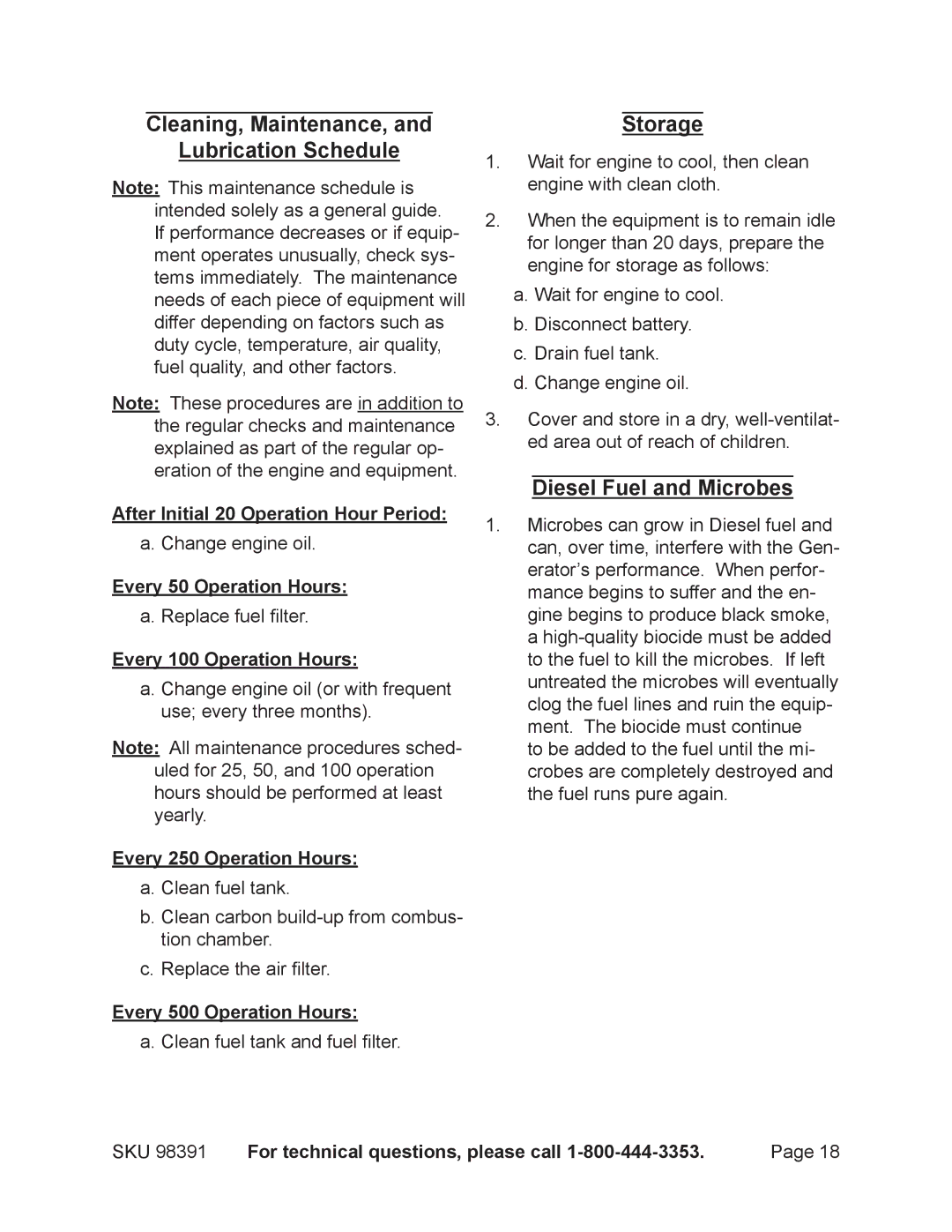
Cleaning, Maintenance, and
Lubrication Schedule
Note: This maintenance schedule is intended solely as a general guide. If performance decreases or if equip- ment operates unusually, check sys- tems immediately. The maintenance needs of each piece of equipment will differ depending on factors such as duty cycle, temperature, air quality, fuel quality, and other factors.
Note: These procedures are in addition to the regular checks and maintenance explained as part of the regular op- eration of the engine and equipment.
After Initial 20 Operation Hour Period:
a. Change engine oil.
Every 50 Operation Hours:
a. Replace fuel filter.
Every 100 Operation Hours:
a. Change engine oil (or with frequent use; every three months).
Note: All maintenance procedures sched- uled for 25, 50, and 100 operation hours should be performed at least yearly.
Every 250 Operation Hours:
a. Clean fuel tank.
b.Clean carbon
c.Replace the air filter.
Every 500 Operation Hours:
a. Clean fuel tank and fuel filter.
Storage
1.Wait for engine to cool, then clean engine with clean cloth.
2.When the equipment is to remain idle for longer than 20 days, prepare the engine for storage as follows:
a.Wait for engine to cool.
b.Disconnect battery.
c.Drain fuel tank.
d.Change engine oil.
3.Cover and store in a dry,
Diesel Fuel and Microbes
1.Microbes can grow in Diesel fuel and can, over time, interfere with the Gen- erator’s performance. When perfor- mance begins to suffer and the en- gine begins to produce black smoke, a
to be added to the fuel until the mi- crobes are completely destroyed and the fuel runs pure again.
SKU 98391 | For technical questions, please call | Page 18 |
